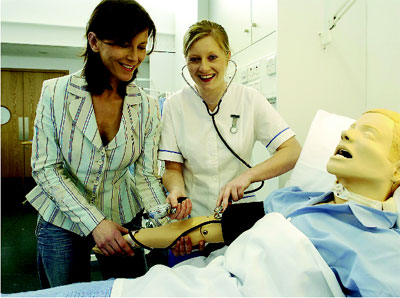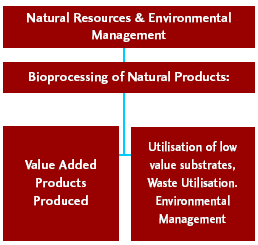| 2006 |

|
YEAR BOOK |
Institute of Technology Tralee
|
Institute of Technology Tralee
|

The Irish National Observatory of Sport (INOS)
The National Observatory of Sport (INOS) was established in September 2005, in the Institute of Technology Tralee, as a Strategic Research Area within the Department of Health and Leisure Studies. It is envisaged that the INOS will work within a partnership arrangement with key policy makers/social partners in Irish Sport.
The main objectives of the research undertaken by the observatory are as follows:
|
� To inform National
strategy in interdisciplinary matters pertaining to sport and physical activity
� Collect and treat labour market and skills intelligence � Advise and encourage dialogue between National policy makersin, Government among Employers and Social Partners and Education and Training Providers � Map skill needs of the sector with vocational education training (VET) programmes. � The EU Observatoire partnership enables comparative analysis with other EU member states facilitating similar strategic planning on a European level. |
The INOS is being managed by Catherine Carty with assistance from Jackie N� Mhuircheartaigh, contact details as follows:
Contact: Catherine Carty / Jackie N� Mhuircheartaigh
Irish National Observatory of Sport,
Institute of Technology Tralee, Co. Kerry.
Tel: 066 7145600 Ext 2372/2224
[email protected]
[email protected]
Nursing, Health and Social Care Research Unit: Instituteof Technology Tralee
Patient care in the South West: Nurses� use of research based evidence in clinical decision making
Florence Nightingale once said that nurses were merely expected to be devoted and obedient workers (Woodham-Smith 1979). Nurses� scope of practice has evolved significantly in the century and a half since she made this statement. Today�s nurses are highly trained and educated individuals who have a wide range of responsibilities. They look after the well-being of their patients by being caring and emphatic while concurrently using their critical thinking skills to identify patients� physical, psychological and psychosocial problems.

The study consists of three phases. Phase one involves interviewing nurses from across the spectrum of nursing disciplines - acute care, community care, intellectual disability and mental health. Participants are given practice- based scenarios and asked what decisions should be made and what sources of information could be used in the situation. Their own use of research based evidence in decision-making is then explored by asking questions such as: What organizational structures are in place that either simplify the process or make it more difficult? How comfortable are they with finding and utilising research based evidence? What barriers do they perceive? What facilitators are in place and what facilitators would they like to see introduced? In phase two, the results of these interviews are analyzed and combined with input from a panel of experts in order to develop a questionnaire to send to nurses throughout Cork and Kerry. In phase three, questionnaire results are analyzed and fed back to decision makers. Findings from this exciting project will inform managers, practitioners, policy makers, academics and researchers and make a direct contribution to the quality of patient care.
Contact: Dr.Siobh�n Ni Mhaolr�naigh or Denise O�Leary,
Department of Nursing and Health Care Studies,
Institute of Technology,Tralee
Tel: 0667181971
Email: [email protected]
Natural Products Research and Development Centre (NPRDC)

An important objective of the NPRDC at IT Tralee is the use and development of state of the art technologies in the conversion of indigenous natural products such as algae and food wastes into value added products. Examples of natural products which are largely under utilised in this country include seaweed, cereal and microbial protein and a diverse range of waste products from the Food and Marine sector. Current research funded by Innovation Partnerships with industry and postgraduate research programs are now focussing on bioconversion into functional food ingredients of cereal proteins such as soya, wheat and microbial protein derived from spent yeast. Another important research area is in extraction of carbohydrates from seaweed and other sources. The NPRDC which has essentially stemmed from the Strategic Research (SRA) at the Institute will also help to consolidate and commercialise research in Bioprocessing and Bioseparation of natural products.
Contact: Brendan Mc Carra, Lecturer / SRA Leader,
Chemical and Life Sciences
Department, School of Science,br/> IT Tralee. Tel: 066 7145616 Extension 2387
Email: [email protected]
It�s seaweed, but not as you know it
Seaweeds (macroalgal) extracts are of interest to scientists of diverse interests. Research has found applications for seaweed extracts as food ingredients, burn-bandages, an artificial pancreas, drug-release capsules, horticultural fertilizer, anticancer agents and remediation of heavy metal pollution. All arise from a natural material that is often left to rot on the shore. With so much coastline and marine-related industry in Kerry, researchers in the Institute of Technology, Tralee have been studying the applications of seaweed extracts for many years, with strong emphasis new product development; for example, horticultural applications of seaweed extracts, the natural digestion of seaweed to form an �organic� digest; the isolation of bacteria and bacterial enzymesinvolved in the digestion of raw materials such as seaweed (also hair and feathers); the development of a novel version of alginate (a gelling polysaccharide found in seaweeds) for safe delivery of drugs to the gastrointestinal tract. Research into bacterial enzymes and macroalgae in IT Tralee is on-going at undergraduate, contract and post-graduate levels.
For further information on postgraduate vacancies, visit www.ittralee.ie or [email protected]
Terra Nova Research
Terra Nova is an interdisciplinary applied research group in the Institute of Technology Tralee which is focusing on the following strategic research areas:
|
�
Mobility and Wireless
with an emphasis on applications of RFID technology
� E-learning, M-Learning and Educational Technologies |
Example projects include:
|
� Determining the feasibility of using Radio Frequency Identification (RFID) in the fish processing industry. This involves whether data can be written and read from RFID tags consistently, when these tags have been exposed to various environmental and other conditions. The environmental conditions raise many complex issues, when looking at the propagation of Radio Frequencies (RF). The abundance of moisture, metal, and ambient RF noise; from electrical devices and temperature fluctuations all affect RF. The research culminates with recommendations on the feasibility of RFID tags with different antenna sizes, form factors and a number of other issues which affect RFID operation.
� SORCEROR - Source for Rapid Open Content in Learning Object Repositories. The overarching goal of Sorceror is to develop a sustainable rapid open content development model which is based on col laborative contributions by teachers and learners, where quality is assured through peer review and which addresses issues of context, culture and linguistics in a higher education context in Europe. The Open Source Software (OSS) model has proved successful as a model for community-based collaborative development of software and the principles of open source are beginning to be applied to open content also. � Focussing on the convergence of telecommunications infrastructure for the provision of communications with RFID sensorsand data over the GSM network. This will allowthe development of a solution that leverages existing wireless technologies to bridge the gap that currentlyexists in the RFID asset tracking and managementworldwide. Many technologiesarebeing investigated including GSM/GPRS, Sensor Networks Machine to Machine (M2M) communications, GPS and Middleware softwaresolutions. This will conclude with the design and implementation of systems capable of transmitting RFID data securely in real time to clients, this will include integration to espoke systems. |
Contacts: Dr. Pat Doody (Strategic Research Area Leader) [email protected] Tel: 066 7191655
Ed Sheldon (Strategic Research Area Leader) [email protected] Tel: 066 7191655
Carol O�Shea (Strategic Research Area Leader) [email protected] Tel: 066 7191655
Deirdre Lillis (Head of Department Computing & Mathematics ) [email protected] Tel : 066 7191655
Terra Nova Research Group, Department of Computing & Mathematics, Institute of Technology,Tralee, Tralee, Co. Kerry, Ireland.